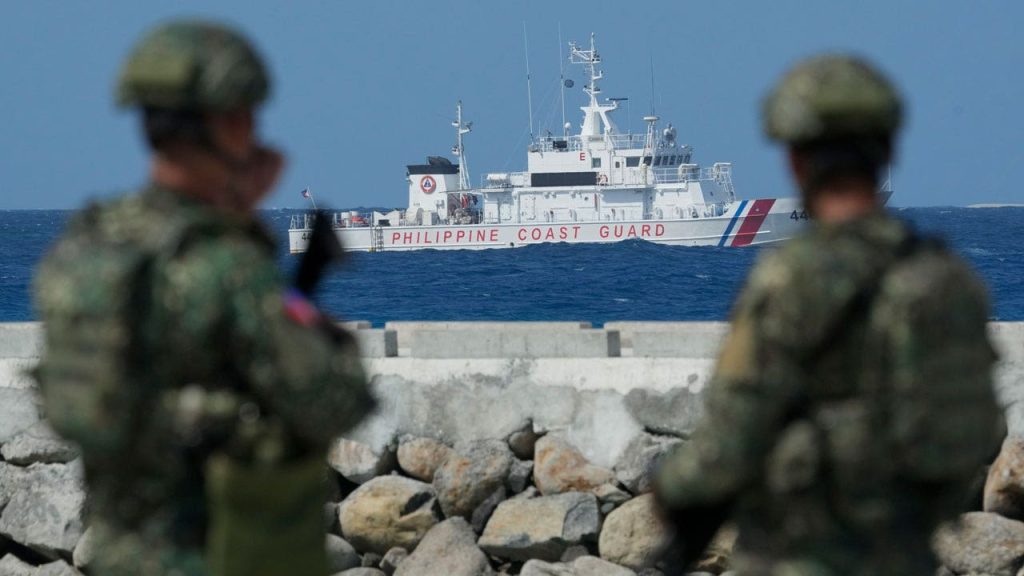China has publicized what it calls an unwritten 2016 agreement with the Philippines regarding access to South China Sea islands. The agreement allowed small-scale fishing around the islands but restricted access by military, coast guard, and other official planes and ships to the 12 nautical mile limit of territorial waters. The move threatens to raise tensions in the disputed waterway, through which much of the world’s trade passes and which China claims virtually in its entirety. The Philippines respected the agreement over the past seven years but has since reneged on it, leading China to take action, according to a statement from the Chinese Embassy in Manila.
The current President of the Philippines, Ferdinand Marcos Jr., and former President Rodrigo Duterte, have denied forging any agreements that would have surrendered Philippine sovereignty or sovereign rights to China. After his visit to Beijing, Duterte hinted at such an agreement without offering details. Marcos, who took office in June 2022, has stated that he was not aware of any secret agreement between the Philippines and China. He is under pressure to rescind any agreements that were made without proper documentation. Duterte, during his presidency, maintained close ties with Chinese President Xi Jinping while also being openly hostile to the United States.
The South China Sea dispute involves several countries, including China, the Philippines, Vietnam, Malaysia, Taiwan, and Brunei, each with overlapping claims in the sea that is rich in fishing stocks, gas, and oil. China has refused to recognize a 2016 international arbitration ruling that invalidated its expansive claims in the area. Tensions between China and the Philippines have increased recently, with reports of skirmishes between coast guard vessels and accusations of dangerous maneuvering. The United States, while not claiming any territory in the South China Sea, has deployed Navy ships and fighter jets in freedom of navigation operations to challenge China’s claims.
House Speaker Ferdinand Martin Romualdez, cousin and political ally of President Marcos, has ordered an investigation into what some are calling a “gentleman’s agreement” between the Philippines and China. China claims that Philippine officials promised to remove a navy ship grounded in the Second Thomas Shoal in 1999, which serves as Manila’s territorial outpost. However, Philippine officials deny any knowledge of such an agreement. China has accused the Philippines of violating commitments and acting illegally in the South China Sea without providing specific details. The U.S. has warned that it is obligated to defend the Philippines if they come under armed attack in the South China Sea, as the two countries have a long-standing treaty alliance.
While the exact details of any agreements between China and the Philippines remain unclear, the public disclosure of the alleged 2016 agreement has raised concerns about the implications for regional security. Both current and former Filipino leaders have denied any agreements that would compromise Philippine sovereignty, but China’s claims and accusations of violations continue to fuel tensions in the South China Sea. The presence of U.S. military forces in the region, conducting freedom of navigation operations, adds another layer of complexity to the situation, as the U.S. has reiterated its commitment to defend its treaty ally, the Philippines, in case of armed attack. The ongoing disputes in the South China Sea highlight the strategic importance of the region and the challenges of managing competing territorial claims in a complex geopolitical environment.


